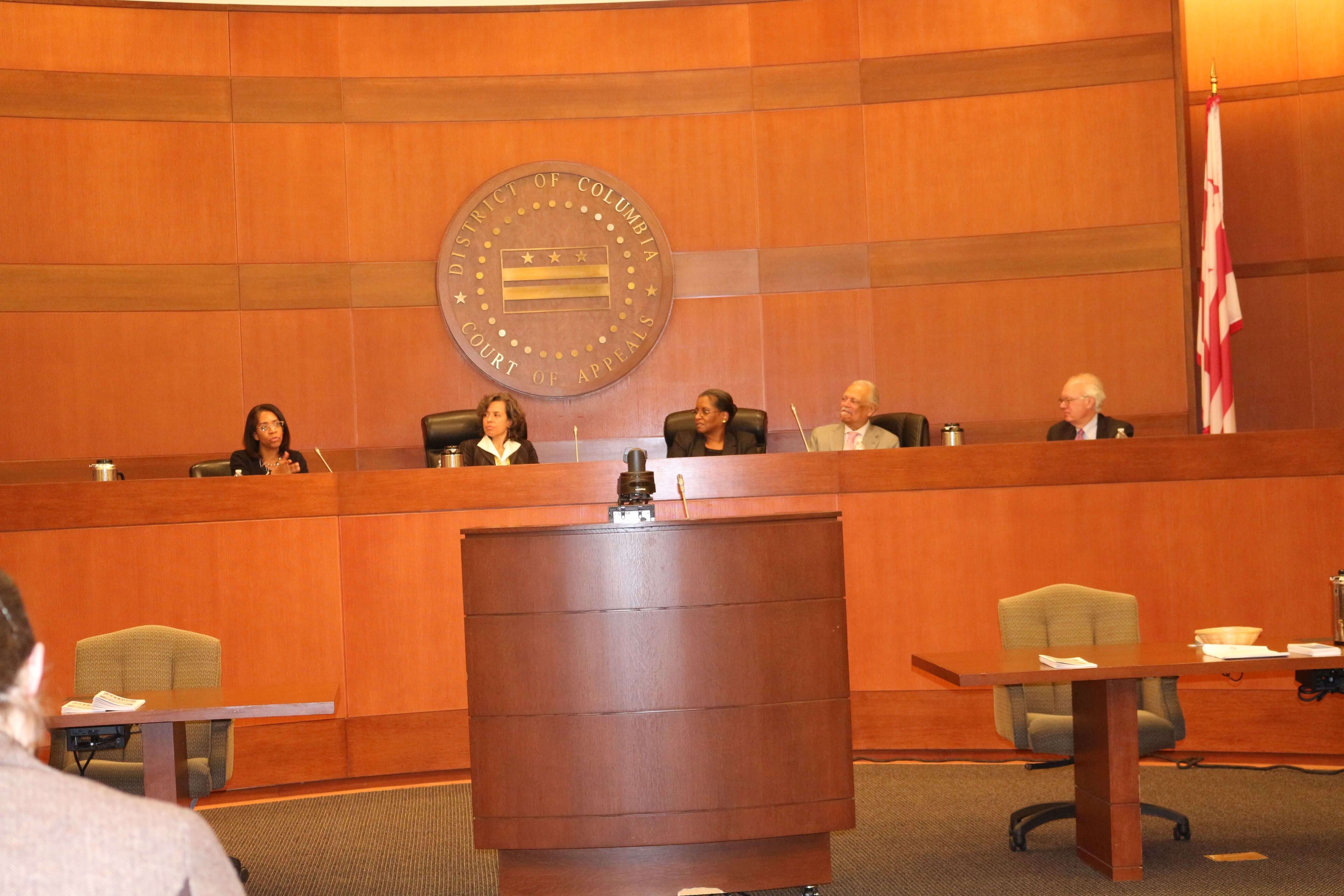
Joining the District of Columbia Bench
by Dawn Williams
Earlier this month, we partnered with the Greater Washington Area Chapter, Women Lawyers Division, National Bar Association (GWAC) to discuss what it takes to join the District of Columbia Courts. We learned about the role of the District of Columbia Judicial Nomination Commission (JNC) and got first hand experiences and advice on applying to become a judge in DC from those serving on the bench.
It’s never too early to start preparing should you aspire to a career as a judge in DC. But first, you need to know the qualifications. There is no minimum age requirement, but you must apply and be confirmed before age 74. You must be a United States citizen and an active member of the unified District of Columbia Bar. You must have a minimum of 5 years practice experience in the District of Columbia immediately preceding nomination (the five-year practice requirement can also be satisfied by serving on the faculty of a District of Columbia law school or by being employed as a lawyer by the United States or District of Columbia government), but trial experience is not mandatory. You must be a bona fide resident of the District of Columbia for at least 90 days prior to nomination. And, as the District of Columbia has a bench of diverse jurists, all backgrounds are sought.
The application process is your opportunity to demonstrate your suitability for the bench. Begin preparing by identifying references and completing the application materials well in advance of the time frame in which you hope to be nominated. The application process begins when a Notice of Judicial Vacancy is posted and consists of completing and submitting the application forms and related documents to the JNC. Once an application period closes, the JNC publishes a list of applicants, solicits public comment, and conducts a background investigation of applicants. The JNC then selects three candidates for each vacancy to recommend to the President of the United States, who then has 60 days to nominate a candidate for the vacancy. After a candidate is nominated, the Senate begins the vetting process to move forward to the confirmation hearing. Applicants can expect a period of roughly 15 weeks from announcement of a vacancy until recommendation of candidates to the President. There is no timeline for Senate confirmation.
The determining factors of nominations are career experience, character, and commitment to community and justice. What does that mean? The JNC is looking for what a candidate can bring to the court. Character and fitness factors such as temperament, impartiality, and integrity demonstrated throughout your practice will be considered. Positive comments from opposing counsel often carry special weight. Your judgment is your most important attribute as a judge, and so highlighting a positive track record of helping people resolve conflicts will demonstrate your good judgment. Community outreach and involvement are also important. Work that addresses the needs of the community is a key indicator of your ability to handle a diverse set of circumstances.
The bench needs good jurists if justice is to be served. If you would like more information about the judicial recommendation and nomination process, visit the JNC website at https://jnc.dc.gov/. Or, consider joining one of JNC’s “Open Conference Calls,” during which the JNC’s executive director explains the judicial application process and can answer any questions you may have.
Dawn Williams is a government attorney and member of Washington Council of Lawyers.






